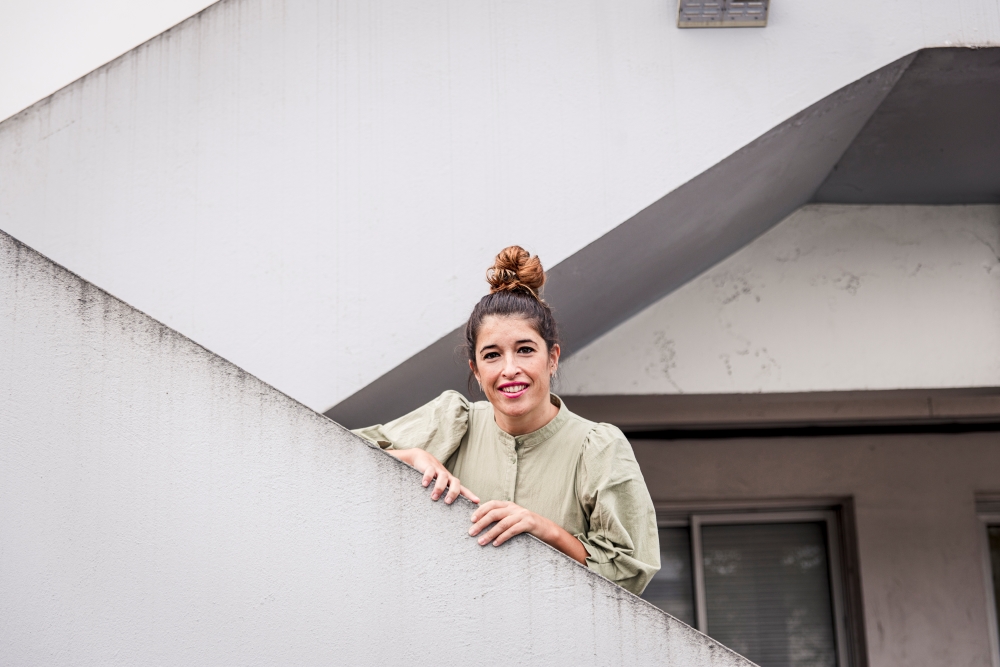
- Recognizing that it is difficult for him to take on the changes, Ilazki Gainza Giraldo (San Sebastian, 1986) created the Kalaka project with the aim of changing habits so deeply rooted in society. Our colleague Nerea Uria Gigorri offers advice, design, communication and feminist training. With the backpack full of work experience and confidence, Gainza looks forward with illusion.

The calachus, is it more than a calacal tool, no?
We try! Six years ago, we started to offer services focused on communication and equality. Over time, depending on the circumstances and needs, we have been defining and developing these services, offering in recent years equality plans, training, advice, communication and design, among others. They're different areas that are, or we're doing, yoke. We work with mime. If the customer is a large or small company, a newly started cooperative or a means of communication, our attitude is usually the same. We work to adapt to the group and meet its goal.
Since we were born in 2015, each year we have been filled with different challenges and surprises. For our part, we give everything to make progress. The development path is being very nice, rich, but also tough. Last year, for example, we developed for the Provincial Council of Gipuzkoa the project called Pausso, in collaboration with other cooperatives. We felt small for it, but the fact that we have achieved it has given us a great deal of confidence.

More and more groups are offering these types of services. Is it difficult to make room?
Yes, it's very difficult. We are very young, just two friends. But from the very beginning we have seen the need and willingness to work with others. Because we believe that, in the name of competition, doors are not closed, but doors are opened by adding hands. In addition, from the beginning it was clear that ours was going to be a feminist project, and from the beginning we applied the motto “life in the center” that has been so fashionable in the health epidemic. That's our basis. We respect the very rhythms of each other, whether of the peers or of the clients, we do not leave anyone or anyone aside. And we think the client perceives it and appreciates it.
In 2017 we created the network of women entrepreneurs Ekion, whose objective is to listen and help each other, to be able to exchange opinions, tips, supports, resources and experiences in Euskera. It is the space that we miss in the development of our project. Emotions play an important role in this work. The development of any project is linked to the emotions themselves. Feelings can condition anything. Therefore, the importance of mutual care and personal care is fundamental in Kalaka.
What is your experience in feminist training?It seems that it has become fashionable in recent
years. The issue has normalised and politically it is right to opt for equality, but unfortunately the reality is different. In the training sessions we are faced with a great deal of resistance. We always believe that others are macho and that ours is a good attitude. However, in these kinds of sessions we realise that we are wrong. Today, feminist awareness is not enough. When we talk to companies or institutions, we forget the brand of the entity and work with workers, people. Because we have to act more people than companies. That's where change begins.
White and Western women also have privileges... I would say
there is a lot of lack of knowledge about it. Sometimes we don't know what those privileges are, but under no circumstances can we ignore them. I am lacking in dialogue. Large meetings offer round tables and debates, but in daily life there is nothing like that. On social media, everyone throws our own, from the distance the screen offers, but where is the parallel conversation? That is what tends to bear fruit. The choice to take steps beyond the consciousness and authenticity of the road requires conversations. Because the issue of privilege is full of resistance. However, you and I talk about this so that then someone reads it, there is something.
Education puts the weight on, but is there anything to do?
When we develop equality plans in schools and ikastolas we have been told “we can’t do everything”, and it’s true. On the one hand there is the equality plan, but also the environment, the dissemination of the Basque Country, inclusion… We see good will in the educational centers, but they are overflowing. Outside education there is also where and how to act! In leisure, at home… By offering a book to children, we can try to make the writer a woman, the same with movies or series. There are many creative women for you to become referents! The responsibility lies with everyone.
Do equality plans serve any group?
We adapt to the situation of each entity. Small businesses, for example, do not necessarily have to make a great equality plan. It is often enough with a few sessions. You can make a lot of progress from a young age, with just a few practical workshops. Whoever feels like makes the effort. Cleaning the cups after having a coffee in a group and respecting the word in the meeting, for example, seem like nonsense, but this is still the reality in Euskal Herria.
Communication as a support for the steps towards change, he decided to dispense with journalistic pressure and haste and has guided his life and his professional project towards the realm of equality. In unemployment, after “too long” to fail, the Kooperatzen space became the laboratory of his dream. In the same way that he has learned to travel alone, he has learned to start a cooperative and go ahead. Despite the experience of living for two years in Mexico, Euskal Herria has “cute” and “dear”.